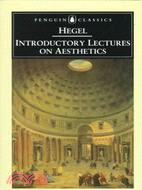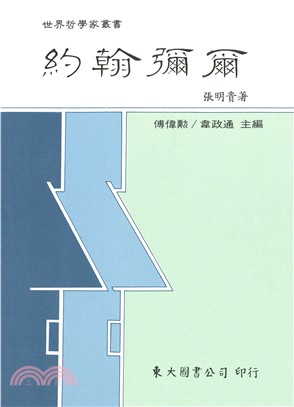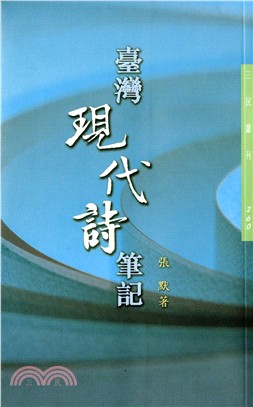Introductory Lectures on Aesthetics
- 系列名:Penguin Classics
- ISBN13:9780140433357
- 出版社:Penguin Group USA
- 作者:Georg Wilhelm Friedrich Hegel
- 裝訂:平裝
- 規格:19.7cm*12.7cm*1.9cm (高/寬/厚)
- 出版日:1994/01/01
商品簡介
To resolve this apparent paradox, as Michael Inwood explains in his incisive Introduction, we must understand the particular place of aesthetics in Hegel's vast intellectual edifice. Its central pillars consist of logic, philosophy of nature and philosophy of spirit. Art derives its value from offering a sensory vision of the God-like absolute, from its harmonious fusion of form and content, and from summing up the world-view of an age such as Homer's. While it scaled supreme heights in ancient Greece, Hegel doubted art's ability to encompass Christian belief or the reflective irony characteristic of modern societies. Many such challenging ideas are developed in this superb treatise; it counts among the most stimulating works of a master thinker.
Table of Contents
Introductory Lectures on Aesthetics Introduction A Note on the Translation and Commentary
INTRODUCTORY LECTURES ON AESTHETICS
Chapter I: The Range of Aesthetic Defined, and Some Objections against the Philosophy of Art Refuted
[α Aesthetic confined to Beauty of Art
β Does Art merit Scientific Treatment?
γ Is Scientific Treatment appropriate to Art?
δ Answer to β
ε Answer to γ]
Chapter II: Methods of Science Applicable to Beauty and Art
[1. Empirical Method - Art-scholarship
(a) Its Range
(b) It generates Rules and Theories
(c) The Rights of Genius
2. Abstract Reflection
3. The Philosophical Conception of Artistic Beauty, general notion of]
Chapter III: The Conception of Artistic Beauty
Part I - The Work of Art as Made and as Sensuous
1. Work of Art as Product of Human Activity
[(a) Conscious Production by Rule
(b) Artistic Inspiration
(c) Dignity of Production by Man
(d) Man's Need to produce Works of Art]
2. Work of Art as addressed to Man's Sense
[(a) Object of Art - Pleasant Feeling?
(b) Feeling of Beauty - Taste
(c) Art-scholarship
(d) Profounder Consequences of Sensuous Nature of Art
(α) Relations of the Sensuous to the Mind
(αα) Desire
(ββ) Theory
(γγ) Sensuous as Symbol of Spiritual
(β) The Sensuous Element, how Present in the Artist
(γ) The Content of Art Sensuous]
Part II - The End of Art
3. [The Interest or End of Art
(a) Imitation of Nature?
(α) Mere Repetition of Nature is -
(αα) Superfluous
(ββ) Imperfect
(γγ) Amusing Merely as Sleight of Hand
(β) What is Good to Imitate?
(γ) Some Arts cannot be called Imitative
(b) Humani nihil - ?
(c) Mitigation of the Passions?
(α) How Art mitigates the Passions
(β) How Art purifies the Passions
(αα) It must have a Worthy Content
(ββ) But ought not to be Didactic
(γγ) Nor explicitly addressed to a Moral Purpose
(d) Art has its own Purpose as Revelation of Truth]
Chapter IV: Historical Deducation of the True Idea of Art in Modern Philosophy
1. Kant
[(a) Pleasure in Beauty not Appetitive
(b) Pleasure in Beauty Universal
(c) The Beautiful in its Teleological Aspect
(d) Delight in the Beautiful necessary though felt]
2. Schiller, Winckelmann, Schelling
3. The Irony
Chapter V: Division of the Subject
[1. The Condition of Artistic Presentation is the Correspondence of Matter and Plastic Form
2. Part I - The Ideal
3. Part II - The Types of Art
(α) Symbolic Art
(β) Classical Art
(γ) Romantic Art
4. Part III - The Several Arts
(α) Architecture
(β) Sculpture
(γ) Romantic Art, comprising
(i) Painting
(ii) Music
(iii) Poetry
5. Conclusion]
Commentary
作者簡介
主題書展
更多主題書展
更多書展本週66折
您曾經瀏覽過的商品
購物須知
外文書商品之書封,為出版社提供之樣本。實際出貨商品,以出版社所提供之現有版本為主。部份書籍,因出版社供應狀況特殊,匯率將依實際狀況做調整。
無庫存之商品,在您完成訂單程序之後,將以空運的方式為你下單調貨。為了縮短等待的時間,建議您將外文書與其他商品分開下單,以獲得最快的取貨速度,平均調貨時間為1~2個月。
為了保護您的權益,「三民網路書店」提供會員七日商品鑑賞期(收到商品為起始日)。
若要辦理退貨,請在商品鑑賞期內寄回,且商品必須是全新狀態與完整包裝(商品、附件、發票、隨貨贈品等)否則恕不接受退貨。
























